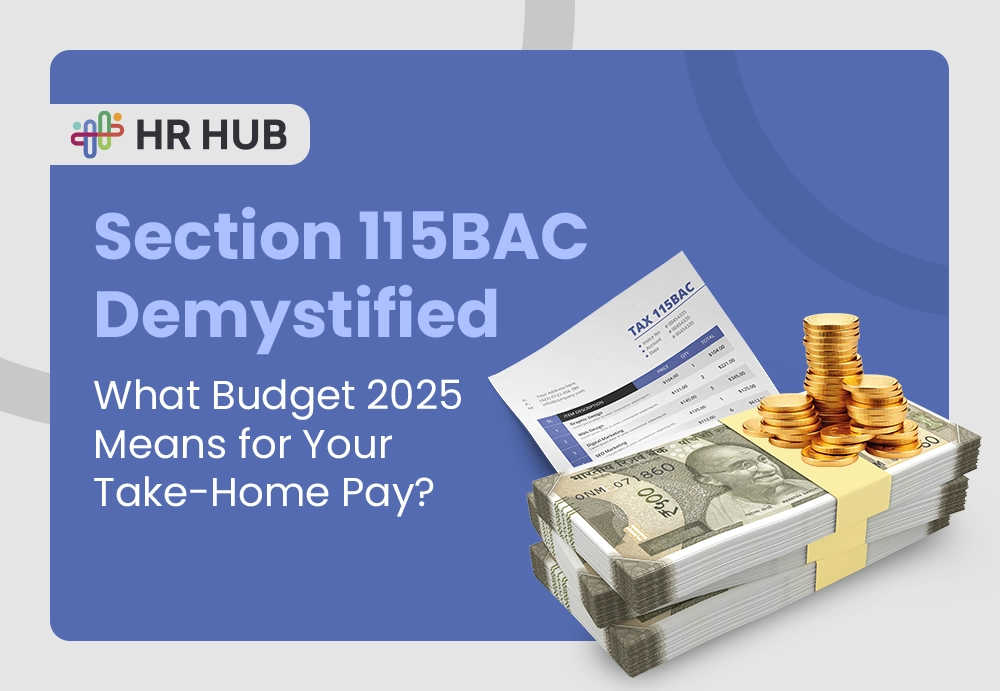Think back to the last time you sat through an annual performance review. A thick form, a few vague ratings, and perhaps a quick chat with your manager before heading back to your desk. For decades, this was the standard way organizations measured success. But here’s the reality: in today’s fast-changing world, that old playbook no longer works.
Employees don’t want to be “scored” once a year. They want ongoing guidance, recognition, and opportunities to grow. Managers, too, are tired of making decisions based on memory or gut instinct. And businesses? They need insights that can keep pace with global, hybrid, and digital-first teams.
Enter AI-powered performance management software—a new era where data, fairness, and continuous learning reshape how organizations look at employee growth.
Why Performance Management Needs a Rethink
The workplace has transformed. Remote work is no longer a perk, projects move faster than ever, and employees expect clarity over uncertainty. Yet traditional systems are still stuck in the slow lane.
- Feedback arrives too late to matter.
- Human biases cloud evaluations.
- Employee engagement slips through the cracks.
- Performance feels like a box-ticking exercise, not a path to development.
That’s why companies are turning to employee performance management software powered by artificial intelligence. It doesn’t just record performance—it interprets, predicts, and guides.

The AI Revolution in Performance Management
Imagine a system that doesn’t just tell you how an employee performed last quarter, but also highlights what skills they’ll need next quarter. Or one that can identify a star performer before even their manager notices.
That’s the promise of AI in performance management. It’s not here to replace leaders—it’s here to give them a sharper vision. With AI, performance management shifts from being reactive to being proactive, turning data into action.
AI-Powered Trends Defining the Future
1. Real-Time Feedback: From Post-Mortem to Proactive
In the past, employees waited months for feedback. By then, the project was long finished, and the learning opportunity was lost. AI flips this model.
Today’s performance management tools can track productivity in real time, nudging managers to recognize achievements instantly or suggest corrections when needed. For employees, this creates a culture of continuous growth rather than delayed criticism. Imagine finishing a client presentation and receiving AI-driven feedback within hours—helpful, specific, and actionable.
2. Smarter Goal Alignment: Every Task Tied to Strategy
One of the biggest frustrations employees face is not knowing how their work contributes to the company’s goals. AI solves this by analyzing organizational objectives and breaking them down into personalized goals for each employee.
Instead of generic KPIs, employees get clear, dynamic goals that evolve with shifting priorities. This alignment ensures employees don’t just work hard—they work in the right direction, fueling motivation and productivity.
3. Personalized Learning Journeys: Turning Reviews into Development
Performance management should be about progress, not punishment. AI transforms evaluation data into tailored learning paths.
For instance, if an employee struggles with leadership, the system might recommend a mentorship program. If another shows promise in data analytics, it could suggest advanced certifications. This shifts the role of employee performance management software from being a scorecard to being a career accelerator.
4. Predictive Analytics: Seeing Tomorrow’s Challenges Today
What if you could predict which employees might quit six months before they resign? AI makes this possible.
By analyzing engagement surveys, attendance, workload, and past performance, predictive analytics identify “flight risks.” HR can then intervene—offering flexible schedules, growth opportunities, or mentorship. This proactive approach helps organizations reduce attrition and keep their best talent engaged.
5. Reducing Bias: Fairness at Scale
Bias has long haunted performance reviews. Some employees feel undervalued simply because they aren’t in the manager’s line of sight. AI helps level the field by basing evaluations on measurable outputs—project completions, collaboration metrics, and peer feedback.
This doesn’t mean AI is perfect (it can inherit biases from poorly designed algorithms), but when used responsibly, it provides a more objective foundation for evaluations, restoring employee trust in the system.
6. Integration with Collaboration & Wellness Tools
Performance isn’t just about output—it’s about balance. Modern AI-powered tools integrate with platforms like Slack, Teams, project trackers, and even wellness apps.
This gives managers a 360-degree view of employees: how they collaborate, how engaged they are, and even how workload affects well-being. In an age where burnout is real, this holistic perspective ensures performance is managed with both productivity and humanity in mind.
What Leaders Should Keep in Mind Before Adopting AI
The promise of AI in performance management is undeniable—but it’s not a magic wand. For leaders, the real challenge lies not just in choosing the right performance management software, but in implementing it responsibly. Adopting AI is as much about culture as it is about technology. Before diving in, here are some critical considerations every leader must weigh carefully:
Data Privacy: Guarding the Crown Jewels
Employee data isn’t just numbers—it’s deeply personal. AI-powered systems analyze everything from productivity patterns to communication habits, which can feel invasive if mishandled. Mishaps here don’t just invite regulatory trouble under GDPR, CCPA, or local labor laws—they also damage trust. Imagine asking employees to embrace a system that feels like constant surveillance.
To succeed, leaders must ensure ironclad data governance. This means clear policies on what’s collected, how it’s used, who has access, and how long it’s stored. Equally important is transparency: employees should know exactly how AI evaluates them. When employees feel safe and informed, they’re more likely to see AI as a partner, not a watchdog.
Integration: Building a Connected Ecosystem
Performance management doesn’t happen in isolation. It touches payroll (for incentives), HR systems (for promotions), collaboration tools (for project tracking), and even wellness apps. A shiny new AI tool that doesn’t integrate with these systems creates silos rather than synergy.
Leaders should look for solutions that seamlessly connect with existing workflows—whether that’s syncing goals with project management platforms or pulling data from attendance and payroll for more accurate evaluations. The smoother the integration, the less friction for managers and employees, and the faster the ROI.
Change Management: Winning Hearts, Not Just Licenses
Technology fails when people reject it. Employees may see AI-driven reviews as intimidating or unfair, especially if they don’t understand how the system works. Managers, too, may resist—worried that algorithms will replace their judgment.
The solution lies in change management. Leaders must actively communicate why the shift is happening, how AI will support rather than replace human decision-making, and what safeguards are in place against misuse. Training programs, pilot runs, and open forums for feedback can ease anxieties. Ultimately, employees are more likely to embrace AI when they see it as a growth enabler rather than a policing mechanism.
ROI Measurement: Beyond the Price Tag
AI-powered performance management tools are an investment, and like any investment, leaders must ask: what’s the return? The benefits—improved engagement, reduced attrition, and sharper decision-making—may not always appear on financial statements immediately, but they’re no less powerful.
To measure ROI effectively, leaders should define clear success metrics upfront:
- Did engagement scores improve?
- Has attrition dropped?
- Are managers saving time in review cycles?
- Do employees feel evaluations are fairer?
The key is to measure both quantitative outcomes (like reduced turnover) and qualitative outcomes (like employee trust). When both align, the investment isn’t just validated—it becomes a competitive edge.
Turning Considerations into Strategic Advantage
Handled thoughtfully, these challenges aren’t roadblocks—they’re stepping stones. Addressing data privacy builds trust. Prioritizing integration ensures usability. Managing change builds acceptance. Measuring ROI validates long-term value.
When leaders approach adoption with this holistic mindset, AI stops being “just another tech upgrade” and becomes a strategic advantage—one that transforms performance management from a compliance activity into a culture of growth and empowerment.

Redefining Performance with HR HUB
The future of performance management isn’t about replacing people with machines—it’s about combining human judgment with intelligent insights. AI brings precision, fairness, and foresight, while leaders bring empathy, mentorship, and vision. Together, they create workplaces where employees thrive.
That’s exactly the philosophy behind HR HUB’s performance management software. Built to support organizations of every size, HR HUB integrates AI-driven insights with practical tools for continuous feedback, fair appraisals, and personalized growth journeys. It transforms performance management from a dreaded yearly event into an ongoing culture of improvement and trust.
As businesses look ahead, one truth stands out: the organizations that will thrive tomorrow are those investing in smarter performance management today. With platforms like HR HUB, the future isn’t just coming—it’s already here.






